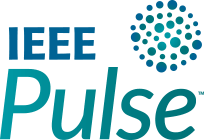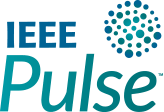No one is going to look after your career for you, but you,” states Erin Malone in her 2004 article “Planning your Future” [1]. Nor will anyone wait for you to get your act together! So what’s the best way to go about it? Plan ahead—start small, then think big!
Although finishing up a degree is a great achievement and a huge relief at the same time, it is also stressful, as you find yourself facing the “real world,” forced to make decisions about your future. Moreover, you may be finalizing your undergraduate senior project or your graduate thesis, but you also need to have your next (few) steps planned out.
Start Planning! The Earlier the Better!
While career planning is not a fundamental component of a biomedical engineering curriculum, it is, nevertheless, a critical component of one’s entire career. In school, we simply just walk into new opportunities that teach us new skills and keep us challenged, and staying challenged does not entail much planning. However, oftentimes, as Graeme Edwards once said, “it’s not the plan that’s important, it’s the planning.” For those still in training, the best strategy to start thinking about the future is to draft out a short-term—five years out—career plan and revisit it on a timely basis to readjust, set new goals, and identify the tools necessary to achieve those goals.
Before you start drafting your five-year plan, make sure you include the date. When you reflect back on this document, it will serve as a reminder of where you were when you first started and what was important for you at that time.
Identify. Evaluate. Analyze.
First, you need to assess where you are in your career at present and reflect upon your passions and priorities to help you identify your goals five years from now. Since you know your strengths and weaknesses, you should be able to come up with an answer to the question “What makes me unique?” Independently of your planned career path, gather as much information as you can about your foreseen position. Think of it as joining a new sports team, the one on which you‘ve always wanted to play. As a rookie, you’ll need to familiarize yourself with the rules of the game. You’re about to venture into a new direction that you need to know more about before getting into, so do your homework! It will also help to know who you can rely on—know your mentors and friends. You will be asked to provide several references from past supervisors, team leaders, or colleagues, so know exactly where to go to receive a great, not just good, reference.
Strategize
Start small (plan three to six months ahead) and think of each milestone as a short-term tangible goal that is achievable. This approach will help you move toward your longer-term goals. Remember that deadlines will help you complete your milestones, so take them seriously and try not to relax them. It’s all about setting tangible goals that are achievable in the time you set; if you can’t accomplish your short-term goals, you’ll experience disappointment and then panic.
Now it’s time to start thinking bigger (six to 12 months ahead)—aiming to learn a new skill or exploring another subtopic of your research project. If you plan to look for a job as a software developer, you might need to seek and get involved in a software development project for your undergraduate thesis. If you want to venture into a new research direction, set up a meeting with your advisor and collaborators, share your ideas, plan it all out, and aim for a paper submission at the end of the year. If you want to become an instructor or embrace a career in education, then think about gaining some relevant teaching experience. Why not approach one of your current favorite professors and ask if you can help with the course next time it is offered or apply to serve as a teaching assistant?
Thinking Beyond the One-Year Mark
Now that you have planned your first year, it’s time to look farther—two years and beyond. Be aware that the two-year mark may involve “getting out” of your current status and “getting into” something else. Some will have finished their degrees by that time and may be working for that software development company they were aiming for, while others may be getting ready to finish up their doctoral degree to soon join another laboratory for postdoctoral training. Although you are looking two years ahead, be realistic about when you expect to complete your degree and are ready to move on. Use this time to make new contacts and connect with your peers. Attend conferences, visit collaborators, make yourself known, and let the world know who you are and what you do. Maintain a good relationship with your previous colleagues; it’s always good to keep in touch with your team members, and you never know how they can help you.
Longer-Term Goals
You may find this planning stage somewhat uncertain, mainly because it is too far down the road. You may not even notice it, but you are either getting closer to that initial goal you had in mind when this exercise started, or you may become aware that you are moving toward a different professional environment than the one you were in at the beginning.
In spite of this uncertainty, you should include these long-term goals in your plan, not only for the record—as an intent to pursue—but also as incentives to help you make the necessary decision and adjustments to make it all happen. Although you may not know exactly where you are going, you do have a general idea of where and what you would like to be. Don’t be afraid to dream big and aim high—the higher we aim, the more we achieve. On that note, it is not unrealistic to portray yourself as a project manager for a biomedical engineering company or an assistant professor in the faculty of engineering at a high-profile university.
Revisit and Adjust Your Plan
You’ve managed to put together a plan, but how do you make use of it? It is an iterative process: you need to go back to it, revisit your milestones, re-evaluate yourself and your progress against your goals, and analyze your achievements. Be flexible and proactive, and feel free to revise your milestones if things have changed, but don’t be too quick to adjust the timeline and keep pushing your deadlines by another couple of months. Instead, try to figure out whether the initial plan was too stringent or perhaps you tried to achieve too much in too little time, leading to a delay in your plans. Be honest with yourself, admit that you could have worked harder, and readjust your milestone time line, but learn from this experience and do not let it happen again!
When you revisit your plan, don’t forget to balance out achievements and other “collateral” accomplishments, such as building professional relationships or contacts that you need to cultivate at each stage in your career plan. Learn from your colleagues and superiors, identify the skills that make them suitable for their roles, and strategize on how you can identify and include similar skills in your professional development. Maximize your collateral accomplishments—they will help you become a more well-rounded and more attractive candidate or asset for a particular career goal.
What if You Change Your Mind?
Remember that all you are putting together a career plan—one to which you are not necessarily married. There is a good chance that you will change your mind, either due to personal aspirations—you simply become interested in a different field or profession—or external factors—the job market is down, so, instead of looking for a job in the private sector, you decide to apply for an internship, pursue a graduate degree, or seek out a postdoctoral fellowship. Don’t be afraid of change, but rather keep an open mind; often change happens for a good reason, one that you may not have thought of initially. If you revisit your short-term career plan often enough, you will be able to adjust your plans to prepare yourself sufficiently early for a slightly different career path.
In conclusion, planning your career is not a weekend chore or a task that you can carry out once and then sleep on for the rest of your life. It is an iterative process, one in which the initial plan will almost never be the final one. Every new opportunity you encounter can open up bigger and better ones. But you need a starting point, and the first five years will define the next few down the road. Similar strategies outlined here can be implemented to develop a lifelong career plan: revisit your initial plan on a regular basis, modify it according to your achievements, set new goals, and start all over again.
Acknowledgments
I would like to thank Dr. Elizabeth Krupinksy (University of Arizona) for her excellent course on early career professional development in medical imaging, parts of which I have used as reference in this article, offered as part of the International Society for Optics and Photonics Medical Imaging Symposium.
Reference
- E. Malone. (2004, Feb. 26). Planning your future. Boxes and Arrows.


